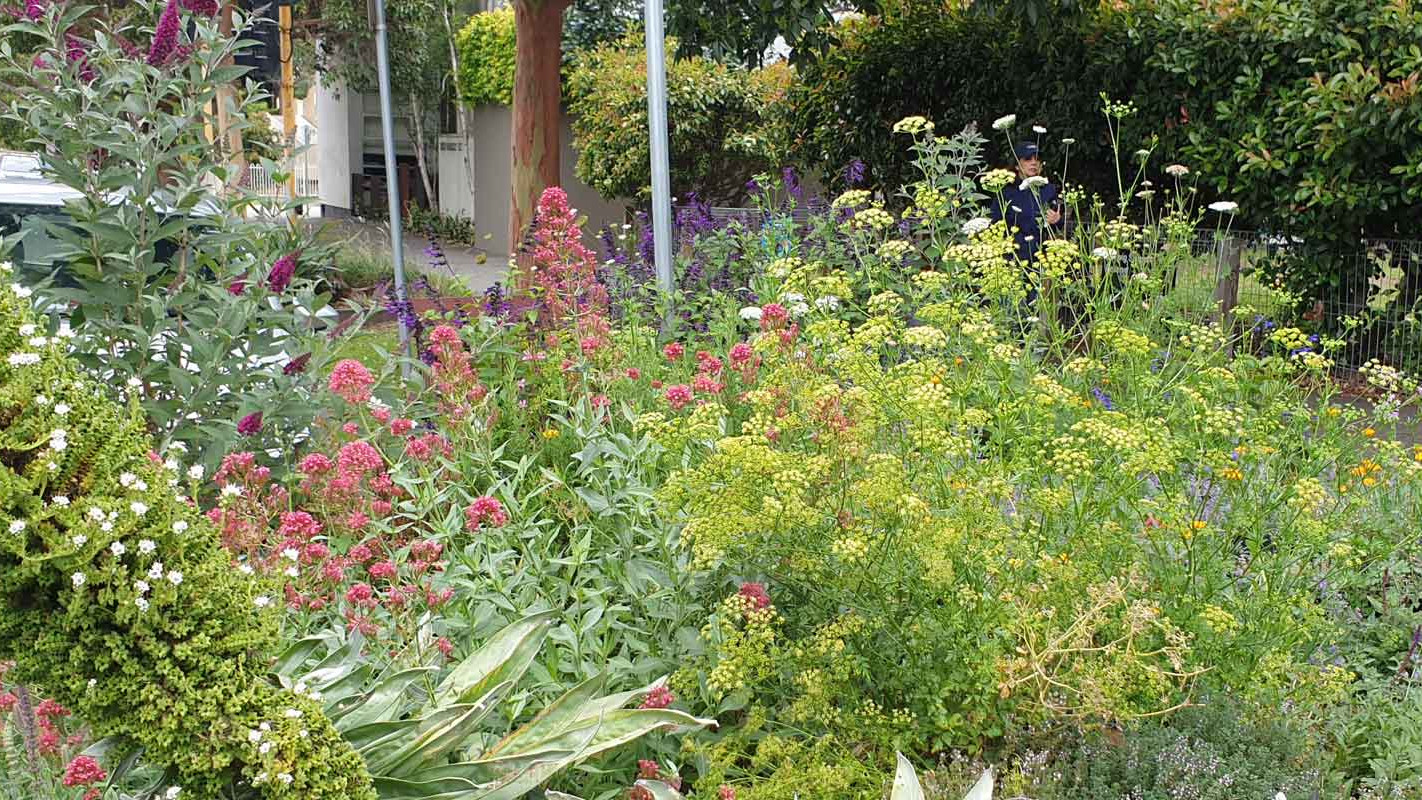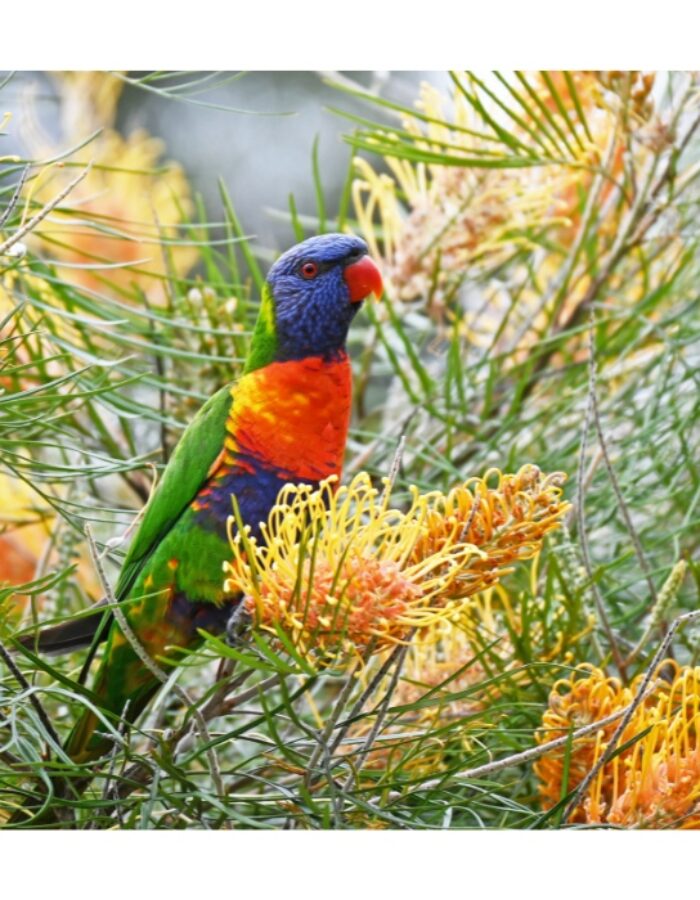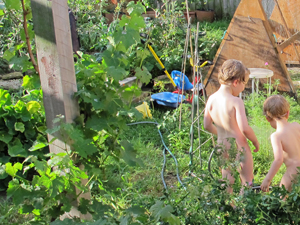 I have experienced bouts of depression and anxiety since I was a teenager. Having lived in apartments and rental houses and growing things in pots for years before we moved into our current house and I got my first proper garden in November 2007. I can honestly say that gardening has proven to be the best self-administered therapy around! As a friend said “Gardening can be really grounding”!
I have experienced bouts of depression and anxiety since I was a teenager. Having lived in apartments and rental houses and growing things in pots for years before we moved into our current house and I got my first proper garden in November 2007. I can honestly say that gardening has proven to be the best self-administered therapy around! As a friend said “Gardening can be really grounding”!
When we bought our house it had the traditional Melbourne suburban back yard – couch grass as far as the eye can see and a big Hills Hoist in the middle (see the ‘Before’ pic – credit Brad Teal Real Estate). Over the past four years my family and I have worked very hard and it now features a plentiful vegie patch (my domain), a pergola with grape wines over our north facing kitchen window, (my husband likes to think of this as his vineyard), a mini orchard (apples, pears, apricot, nectarine, berries and mandarin), chickens (“the chickibabes”) and a succulent collection (thanks to my older son, who loves them). And there is still plenty of designated play area for our kids, including a cubby, sand pit, trampoline and slide.

I have gained immense satisfaction and pleasure from the garden. I glow with pride when people visit and coo and aah at the garden. There is often a degree of surprise when people look out of the window to view such a fertile and plentiful garden in a moderately sized suburban backyard. More than one person has commented “it’s like a little farm”.
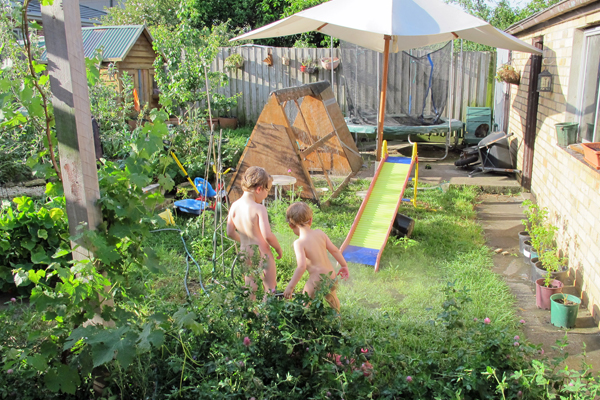
I think that the trick to gardening as therapy is to be in the present – to smell the plants and feel the soil. To notice the bugs and the moisture. To listen to what your garden is telling you about what it needs and to respond without fear of failure. The hardest moments in gardening for me came when I embarked on getting rid of the couch lawn without using chemicals. I look back on what surely must have been months of digging. I would close my eyes and be haunted by the image of the hessian-like weave of couch roots. Pulling up couch and hearing the snapping sound that means I haven’t got it all, is still a source of despair (as I now start to tackle our nature strip and front lawn). But it was all very much worth it and through all that digging and sifting (and digging and sifting and digging and sifting) I learnt so much about the soil in different parts of the garden. If I find myself digging up weeds with resentment or watering the garden (from our rain water tank) on autopilot then I know I need to stop and slow down and be mindful.
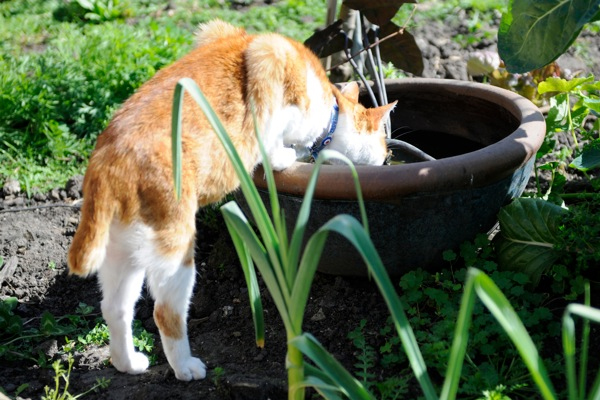
There is always work to be done outside and if I find myself feeling heavy with depression or stunted by anxiety then I know I need to get out there and get on with it. The garden needs me and rewards me in such a tangible way. The garden is the one place that the black and white thinking that can come with mental illness can actually be constructive. When it comes to human relationships black and white thinking is rarely realistic or constructive and one can get tangled up in emotional knots trying to make sense of things through a bout of depression. However a garden has clear needs and if one is not present enough to tend to them then it becomes obvious through the gardens response. Hiding in bed is not an option!
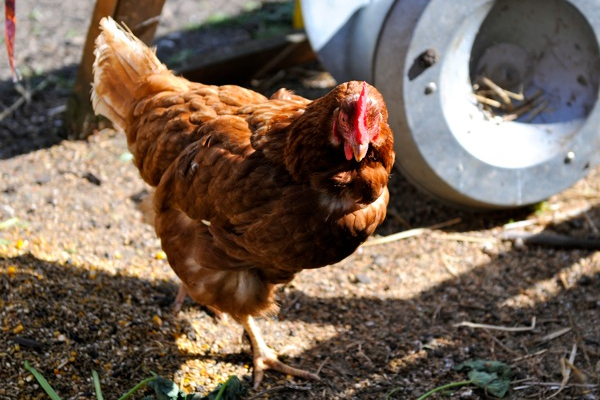
I also believe that there is a lot to be said for the healing properties of good old fashioned fresh air and exercise. Of course, the therapeutic side of gardening is actually really only one small part of why I do it. I didn’t start digging up the couch because I thought it would help me – I wanted to grow veg and teach my kids about nature and sustainability.
I hope to share more gardening stories with SGA on line in the future, but I just wanted to share this aspect of it first.
Lucy
Tell us your story!
This post has been submitted by one of SGA’s website subscribers. We want to share your great gardening stories with the rest of our readers. Do you have an interesting gardening story to tell? Click here to find out more.
Related Articles:
The Time is Now for Street Gardening
As our cities are densified, street gardening on nature strips and verges can make important contributions to biodiversity, beauty, increasing carbon…
Staying Safe While Gardening
Gloves, socks and sometimes masks are very important in preventing disease obtained by gardening - the last thing you want, especially with the…


